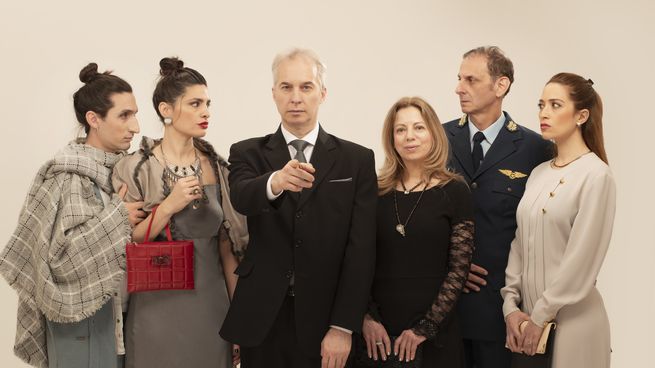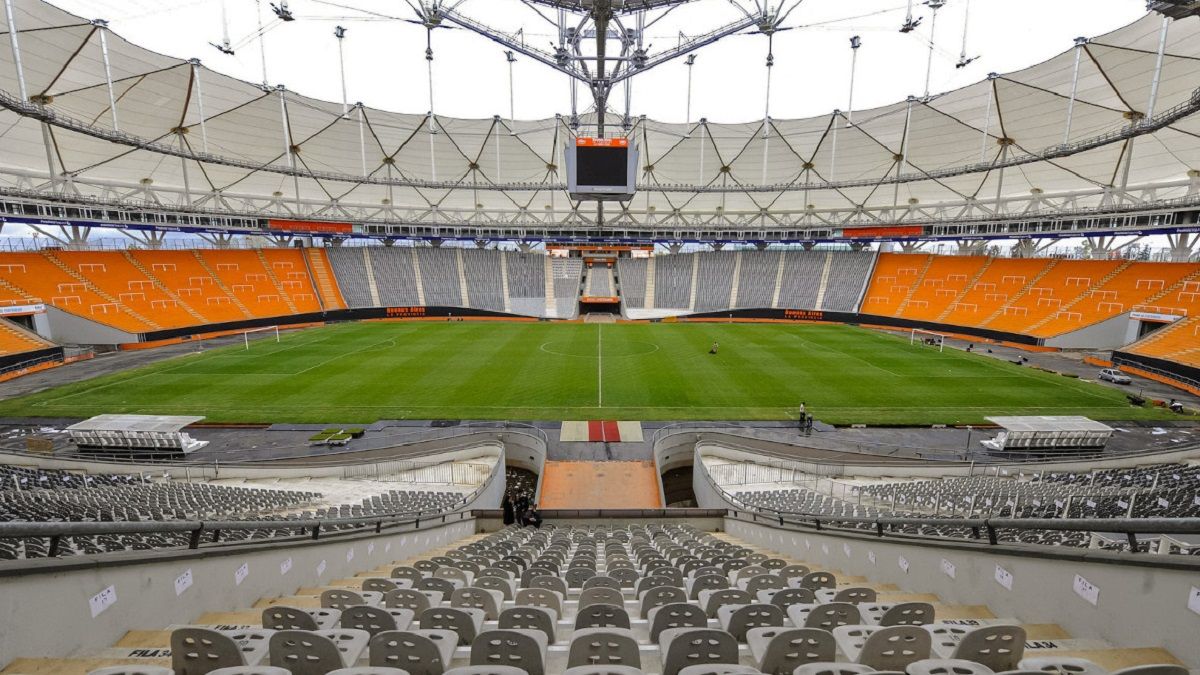“Más ash”, by Juan Mayorga, directed by Adrián Cardoso, is presented at Patio de Actores. The play brings together three couples who are in different and distant places in the same theatrical space.
“In this work the actions are not revealed in their development but in their interruption. “The viewer has the ability to anticipate what is to come,” says the renowned Spanish playwright Juan Mayorga (“Love letters to Stalin”, “The cartographer”), about his work “More ash”, directed by Adrian Cardoso, after his work “The wedding of the president’s daughter.”
The content you want to access is exclusive to subscribers.
This text of Mayorga was written 30 years ago but is updated in the current situation, with performances by Cristian Sabaz, Graciela Clusó, Laura Accetta, Roberto Caute, Federico Vilaro and Alexandra Bangert. It is presented on Saturdays at 6 p.m. at Patio de Actores, Lerma 568. We talked to him Mayorga.


Journalist: What are those three couples like and the stories that connect them?
Juan Mayorga: It makes us attend to three couples in the same theatrical space who are in different and distant places. On the one hand, there is the politician who prepares a much-needed accession meeting in a moment of fragility and shares a bedroom with his wife, a fragile person whom he does not care for as he should but rather uses. On the other hand, there is the military man who has been chosen as the visible face to defeat the politician through a coup d’état and will fill his void. He is with his wife who has a decision-making capacity and will to act greater than his own. Thirdly, there is someone who will carry out an attack in the place where the accession meeting is going to take place. This attack would cause the vacuum that would justify the military’s emergence into power. That man has no power and is with his partner who accompanies him in that decisive moment. The theatrical game allows us to see these three couples in a fundamental and dangerous moment, their hesitations, confusion, their certainties, wills, in that moment of crisis in which everything is at stake.
Q: What is that suspended time and temporary interruption like?
JM: On the one hand, the characters are in a situation where every second counts. There is a clock ticking and decisions to be made now. The situation is extremely urgent and the characters are forced to decide, they cannot postpone anything. Theater allows us for three times to cohabit in the spectator’s time: those of those three couples. The actions are suspended as well as the viewer’s attention. Rather, the action is suspended before the viewer who has to resolve and imagine how that suspension could be resolved. You will imagine different possible developments. Perhaps the viewer anticipates how that action could be triggered.
Q.: What is this novelty of the “fifth wall” that the director incorporates?
JM: It is a brilliant idea, that viewers can see spaces imagined by the creators that have not materialized. They will come into existence in the viewer’s imagination since theater is the art of the imagination. I feel grateful to the director and team for having chosen this work, which was the first one I premiered in ’94. A piece I wrote in that Madrid arrives in Buenos Aires 30 years later and is given new meaning. The actors and director find meanings in it that I didn’t know I had written. I always say that a work knows things that its author does not know and I am sure that Adrián found meanings, dimensions and scope that I did not know.
Q: How do you see this extinct bourgeois world and the transformative power of art?
JM: Old times may die but new times have not yet been born. Without a doubt we live in times of extraordinary transformation in which terrible things happen, two wars take place that we know about and possibly many others that we do not know about. We have to be very attentive to what is happening and intervene to the best of our ability. Sometimes it is said that theater cannot change reality but I say that we have to do it as if it could change it, we have to do it with that transformative ambition. Theater is the art of meeting and imagination, of criticism and utopia, which allows us to examine what exists and imagine other ways of living. Theater is the art of the future.
Q: How do you see theater in Spain today?
JM: In Madrid, Lope de Vega, Calderón de la Barca, Valle Inclán and Lorca, among others, made plays, but we must be humble. Different languages and theatrical experiences coexist on the Spanish stage. There is a diverse scene and a non-majority but important spectator who has rediscovered theater. For decades, Argentine theater makers have been fundamental in the renewal and development of Spanish theater. There are those who are searching for new forms, and there are also those who choose forms that we already know, all of them contribute important works.
Source: Ambito
I am an author and journalist who has worked in the entertainment industry for over a decade. I currently work as a news editor at a major news website, and my focus is on covering the latest trends in entertainment. I also write occasional pieces for other outlets, and have authored two books about the entertainment industry.




